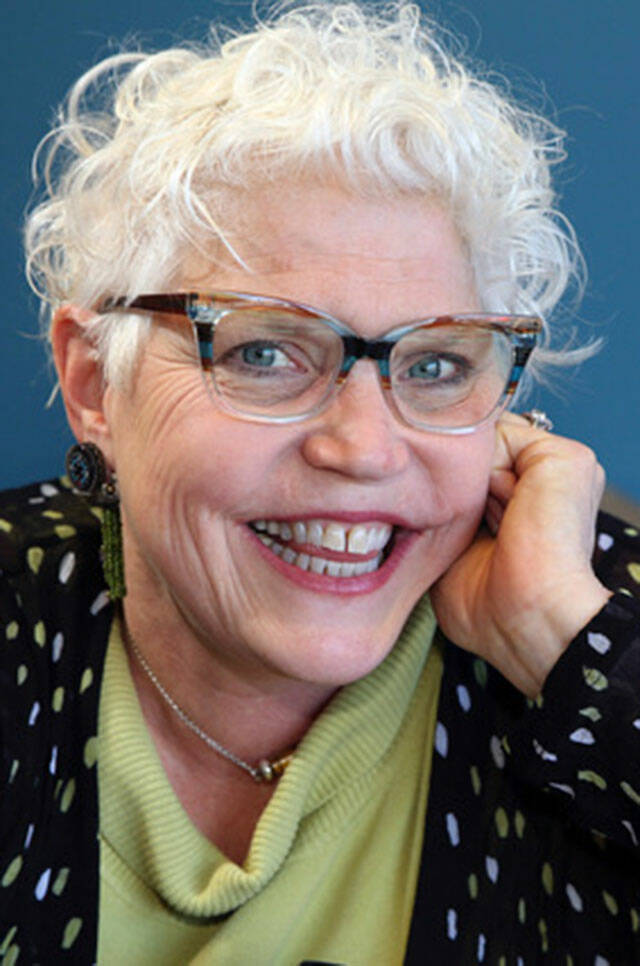By Kathy Coffey Solberg / Herald Forum
I continue to reflect on the great perceived societal divide. So many feel as if this is unprecedented.
I say perceived divide because, on many many issues, a supermajority of Americans is actually in agreement. Yet discord is amplified. It feels like we’re all pitted against one another. And that can’t just be ignored. As a society, we need common ground in order to live, work and thrive together.
Which means seeking to understand, even when we are confident that we’re on track. Seeking to see more clearly, even when we feel that our own vision is sharp.
I just returned from my honeymoon in Greece, where I saw unprecedented heat, the most destructive fires in more than 30 years, and protests in front of parliament with riot police. I did not need to understand the language to understand what was happening.
This discord is in every society. And each individual showing up in protest for their cause believes that they are right.
I’m reflecting and asking, How do you know that you’re right? Why am I confident in thinking that I’m right?
We may believe that we are driven by an internal compass. But think of a GPS system when they first came out. Mine had discs. It was very cutting-edge until roads were added and new neighborhoods built. If our GPS systems are not updated on a regular basis, that once helpful tool can become useless, or even cause harm.
I’m reflecting and asking, How do you know you have all of the information you need? How do I add what I might not be looking for, but should learn?
Remember pinhole cameras? I made my own once to see the world in a different way. Oddly, there are some things that can be seen more clearly through a pinhole camera. But, when you are looking through that hole, you could believe that the world is just that tiny focused part that you see.
We consume information that is primed to reinforce the views we already hold and to paint the opposition as the enemy.
Profit-driven sources of information lack a check-and-balance system. The Fairness Doctrine died in 1987. We have few assurances that information is steeped in the truth.
In the bright light of hindsight, we can see that so many different pieces have given us this societal climate.
In our Leadership Snohomish County classes, we have non-negotiable norms. They cover everything from being present and speaking your truth with respect, to noticing your reactions and turning to wonder when feeling resentment or defensiveness. Each class member agrees to abide by these norms because they make our work possible.
But that’s not how we relate to one another in the world.
What is the answer? Learning more isn’t enough. Information alone is not what drives change.
A prime example: the Kerner Commission. In 1968, the Kerner Commission clearly described unrest in American cities due to conditions that were (and still are) separate and unequal. They painted a bleak picture of what, if it were in another country, we would call apartheid.
“White institutions created it, white institutions maintain it, and white society condones it,” the report said.
The commission’s findings went largely unheeded.
These times are not unprecedented.
They are unacceptable, unreasonable, unconscionable, heartbreaking.
But not unprecedented.
I will say again: as a society, we need common ground in order to live, work and thrive together. This does not mean abandoning your values in order to get along. It does not mean ignoring our differences in the name of civility.
But it does mean seeking to understand, even when we are confident that we’re on track.
Seeking to see more clearly, even when we feel that our own vision is sharp.
We may know what someone believes, but not why. Genuine curiosity can help bring us to wonder about the why. Do you think this spirit of curiosity would make a difference in your everyday life? Could curiosity move you to wonder about someone’s why today? I’d love to hear your thoughts.
Kathy Coffey Solberg is the executive director of Leadership Snohomish County, which connects and develops leaders to strengthen our communities. To learn more about Leadership Snohomish County, go to www.leadershipsc.org.
Talk to us
> Give us your news tips.
> Send us a letter to the editor.
> More Herald contact information.

























